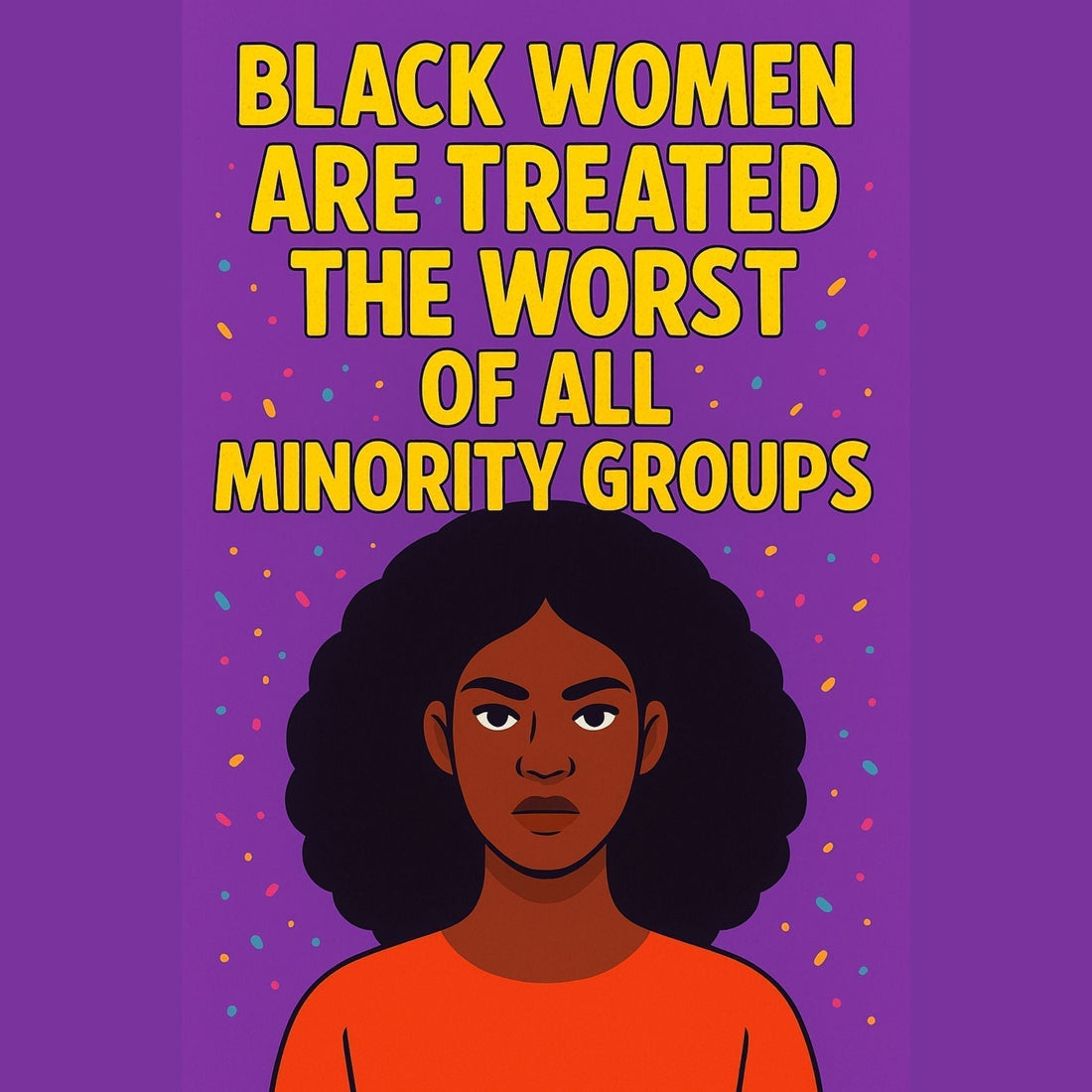
Well-Documented Areas of Inequity for Black Women: A Personal Perspective
Share
I have spent 55 years in this skin — Black, female, proud — and I have learned that no matter how hard we work, how educated we become, or how gracefully we carry ourselves, the world still finds a way to push us to the margins.
Black women are treated as the backbone of their families and communities, yet in the eyes of systems and institutions, we are often invisible — until we are being punished or disrespected.
We are 3 to 4 times more likely to die from pregnancy-related complications. We earn 67 cents for every dollar a white man makes. Even with a college degree, we face more debt, fewer promotions, and constant microaggressions in the workplace.
It is not just unfair — it is a pattern. And it is time we speak up about it.
As a single black woman with no children, I often reflect on the systemic inequities that disproportionately affect people like me. The weight of these disparities not only impacts our lives but also shapes the narratives and futures of countless other women in our community. It is crucial that we acknowledge and address these inequities in health care, economics, workplace environments, education, and the criminal justice system.
Health Care Disparities
You may have heard the alarming statistic that Black women in the U.S. are three to four times more likely to die from pregnancy-related causes than white women. While I am not a mother myself, this statistic resonates deeply with me. It speaks to a broader issue of neglect and misunderstanding within the healthcare system. Studies have shown that medical professionals often fail to listen to Black women, which can lead to catastrophic outcomes. In my life, I have experienced moments of being dismissed by healthcare providers, and I know many women who have faced similar struggles. We must ensure that every woman, regardless of her race, is heard and respected within the medical community.
Pay Gap and Economic Inequality
The economic landscape for Black women is bleak. According to the National Women’s Law Center, I earn only 67 cents for every dollar earned by my white male counterparts. This disparity persists even when education is considered. I pride myself on being well-educated, yet I still encounter wage gaps compared to less educated colleagues. This systemic economic inequality takes a toll — it limits opportunities, stifles advancement, and makes it more challenging to achieve financial security.
Workplace Bias
When I think about my career journey, I can’t help but reflect on the biases and microaggressions that I’ve faced along the way. The 2020 McKinsey report on “Women in the Workplace” underscores a painful truth: Black women are often last in line for promotions and professional development opportunities. I’ve witnessed this firsthand; many of my talented peers have struggled for visibility and recognition in corporate spaces. The absence of mentors who understand our unique challenges further exacerbates this issue. It’s frustrating — and frankly exhausting.
Representation in Leadership
Despite our education and experience, Black women remain underrepresented in leadership roles across many sectors. According to Catalyst.org, less than 2% of senior leadership positions in Fortune 500 companies are held by Black women. That statistic is disheartening, especially when I think about the wealth of knowledge and perspective that we bring to the table. We deserve a seat at the leadership table — not just as tokens, but as influential voices shaping decision-making and guiding policy.
Education and Student Debt
I often hear that education is the great equalizer, yet for many Black women, it comes with a heavy price tag. Black women are the most educated demographic by enrollment rates, yet we carry the burden of the highest average student loan debt — often exceeding $30,000. The irony of being educated yet financially encumbered undermines our ability to thrive and contribute to our communities. Education should empower us — not leave us drowning in debt.
Criminal Justice System
Lastly, the inequities faced by Black women extend into the realm of social justice, with alarming statistics about school suspensions and incarceration rates. Black girls are suspended from school at six times the rate of white girls, which is just the beginning of a pipeline that leads many into the criminal justice system. This systematic targeting is a travesty and reflects a larger issue of racial profiling and bias that affects too many young lives.
Conclusion
I find strength in sharing these crucial issues because we need collective awareness and action. Well-documented areas of inequity for Black women are not mere statistics; they are lived experiences that shape our realities and futures. We must elevate our voices, share our stories, and advocate for lasting change.
Together, through our strength and resilience, we can combat these disparities. I hope that by raising awareness and shining a light on these issues, we can inspire change in systems that have been slow and resistant to evolve. The future deserves better for Black women — and we are here to demand it.
